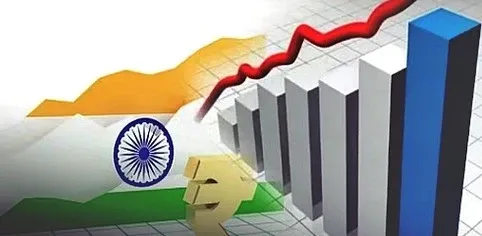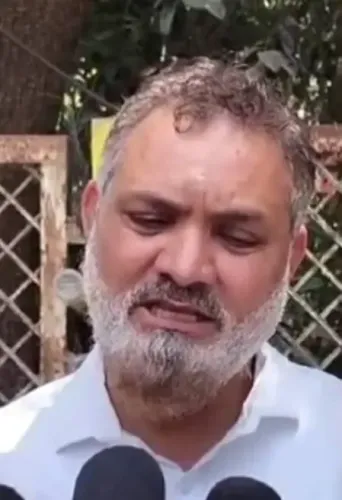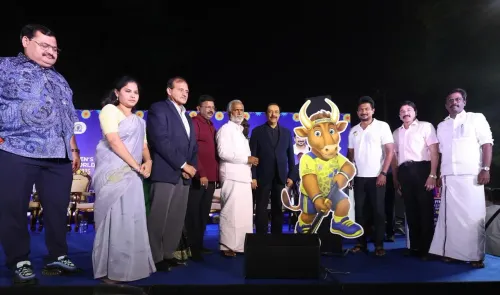Is The Third Eye Making India Strong in the Long Run?

Synopsis
Key Takeaways
- Economic growth should be aligned with welfare initiatives.
- Education and healthcare are essential for a strong democracy.
- Addressing child malnutrition is crucial for the nation's future.
- Rural employment can be linked to school enrollment.
- Uniform law enforcement fosters national unity.
New Delhi: In a democratic society, economic progress, often gauged by GDP, must be paired with welfarism. The strength derived from a substantial population should align with the government's ability to engage each citizen, ensuring sustainability through a mix of minimum government and maximum governance.
Under the leadership of Prime Minister Narendra Modi, India is making significant strides towards these objectives, with more initiatives underway to realize them fully. A striking example of this gap is the alarming number of children living on the streets in urban areas, lacking education, nutrition, and adequate shelter, which may lead them to develop as citizens with uncertain futures.
This challenge must be addressed directly, and the central government should intervene—ignoring the Centre-State power dynamics—because this issue transcends mere welfare and touches upon the state's duty to recognize and account for all its citizens to foster good governance. A democratic government must also consider the marginalized, not just those who are financially stable or contribute to state revenues.
A thorough examination of existing resources is essential to empower the state in caring for the underprivileged. The Corporate Social Responsibility (CSR) funds from businesses, the National Rural Employment Guarantee scheme, and the Discretionary Development Fund managed by Collectors must be integrated to ensure that every Panchayat Circle has a free primary school and each Development Block has a free residential middle school up to class 8, staffed by locally hired personnel.
Businesses could be encouraged to ‘adopt’ a number of these schools by creating a fund to support them, with oversight assigned to District Magistrates.
Linking rural employment to the condition that parents enroll their children in school is a feasible strategy. Additional measures, such as incentives for adhering to a two-child policy, compensation for families with girl children, and free vasectomy services at local hospitals, could further support this cause.
Expenditure on welfare does not reflect negatively on a democratic state preoccupied with policies aimed at enhancing the nation’s financial strength. It holds true that the government has always had sufficient funds for its essential functions—the real question lies in its priorities.
Failure to provide access to education could transform the ‘demographic dividend’ into a national burden; merely increasing higher education institutions is insufficient to counteract this threat. Both Education and Health must be regarded as ‘strategic’ sectors by the Centre, compelling states to comply with federal directives in these areas. It should also be constitutionally recognized that both levels of government share the responsibility for these functions.
An informed citizenry contributes positively to the nation and is less susceptible to exploitation due to ignorance. They are better positioned to engage in skill development for their economic advancement. Consequently, it is a fundamental duty of the state to guarantee that all citizens receive a basic education.
The proverb ‘The strength of a chain lies in its weakest link’ applies as much to specific circumstances as it does to state governance, which must protect its sovereignty, economic interests, and security. Any internal vulnerabilities that threaten these three pillars must be identified and addressed at the policy level.
Widespread poverty, stemming from inadequate health and education and affecting demographics, poses a significant concern for democratic India, impacting the success of the foundational principle of ‘one man, one vote’ upon which our democracy stands.
Informed voting is crucial for determining the caliber of leadership, its political commitment to progress, and the effectiveness of governance provided to the populace.
Democracy exists ‘for the people’ and is governed ‘by the people’, with its systemic integrity defined by the citizens, many of whom risk being influenced by adverse factors if they remain uneducated and impoverished. The potential for monetary influence to sway electoral outcomes is alarming—this issue has manifested in the elections of the world’s largest and most established democracies.
It is gratifying that Prime Minister Modi dedicates attention to overseeing various facets of economic development, governance, and special initiatives aimed at uplifting farmers, women, and the urban poor.
He is personally involved in managing international relations and advancing domestic development agendas. His political resolve, diligence, and initiative in enhancing inter-departmental coordination have been hallmarks of his administration.
His ability to shift the focus from ‘control’ to ‘delivery’ within bureaucracy is notably impressive, yielding numerous benefits for the nation.
He should instruct the relevant Ministers to prioritize tackling child illiteracy and malnutrition, which will fortify India’s strength, surpassing its potential to emerge as one of the world’s top three economies.
Our Constitution assigns police and law enforcement entirely to the states, which over time has led to significant challenges with state governments introducing ‘politics’ into internal security matters.
The Centre should assert its influence over the appointment of the DGP and Chief Secretary of each state, referencing the 2008 Supreme Court ruling and the fact that these positions are held by IAS and IPS officers, whose performance is already monitored by the DoP&T at the Centre. The Modi administration could advance national unity by ensuring that a consistent standard of law enforcement is maintained across the country, thereby allowing citizens to freely exercise their fundamental right to reside or work anywhere in the nation.
(The author is a former Director of the Intelligence Bureau)









